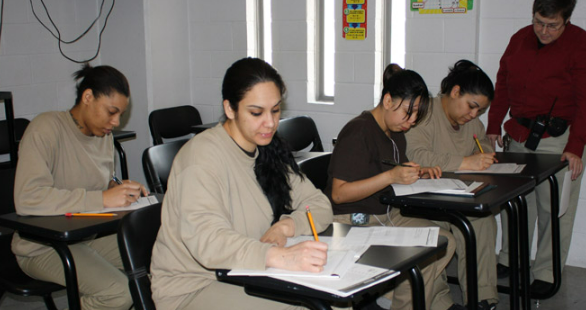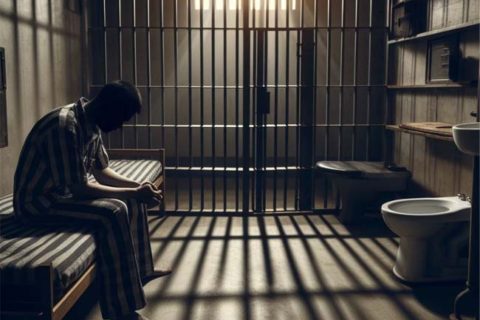Imagine your own life behind bars. Imagine you cannot finish your high school education, and lose out on 4 years of your education. So, should the inmates be given the opportunity to obtain an education while they are in prison? Well, let us discuss that information.
Should Prisoners Be Given the Opportunity to Obtain an Education?
Prison inmates should be given the opportunity to get an education essay or college courses because an education offers a positive change for their release back into society. The education they receive will be able to offer life skills and give them positive reinforcement to alter their lives for the better, while they are restructuring the way some people think and continue through life and society via making proper choices and better role models. While in prison, education will give an important key for inmate rehabilitation. Part of that rehabilitation will be in the form of education. Generally, education in the prison system is geared.

Thus, many of the crimes and minor violations are reduced because the need to commit those crimes on a financial basis is no longer there if the inmate can discover a job. Also, if the prisoner has been educated, they are going to more than likely have a wider moral compass. Several prisoners, upon their release, make similar mistakes and commit crimes, this potentially becomes eliminated for most inmates. With a decrease in crimes, the prison population will decrease. Then the increased revenue is used in educating first time offenders, thus reducing the risk of them becoming repeat offenders.
Making positive influences on the prisoners can reap many benefits than just educating and releasing them back into society. Like we invest money to educate our children, we are able to reinvest money to target populations which our prisoners come from to prevent crimes. When we teach them some new skills which can better their lives, then they are able to teach others by example. Once the inmates enter back into society and get a job in their field, stay away from crime, and also make better choices, they are able to make a positive impact on their communities. Younger generations are able to see the encouraging example set forth and also know that they are able to make wiser decisions too.
Rehabilitation is the action of restoring an individual to health or normal life via training and therapy after imprisonment or addiction. Education in the rehabilitation process will be able to help enormously. It will allow a prisoner to use the dead time in prison to better himself and give them a greater opportunity to get meaningful employment when they finish their sentence. By focusing their minds on the new beginnings which can be waiting for them instead of allowing them time to think about their old life and old habits, will be able to be a major breakthrough.
The idea of rehabilitation is to make sure that those people who go through the process have the strength and resources to make it on their own, and ensure that they do not end up back in prison after they are released. Based on the research, 50% to 70% of all people who return home from prison end up incarcerated again within five years. The idea behind education is to educate people on the rights and wrongs, for showing them how to make a proper living and to ensure they will not be back in prison.
Some Pros of Educating Prisoners
Here are some pros of educating prisoners:
- Education will be able to reduce the recidivism rate.
The prisoners who participate in the education programs have an average 46% lower rate of recidivism compared to the prisoners who did not take any college classes. The Correctional Education Association found that the correctional education lowers long-term recidivism by 29 percent.
- Education will be able to reduce the levels of violence in the prison.
The directors of prison education programs explained noticeable improvements in the general discipline and conduct of the facility. In fact, it only takes one semester for the prisoners to start getting benefits. Several students police themselves out. There are some changes in behavior which occur because there is an improvement to the cognitive capacity of the inmates with those programs. It provides an individual the opportunity to feel human again.
- Prisoner education will be able to make a chance for apprenticeships and internships.
Educational classes in prison do not need to be 100 percent dedicated to textbooks and classroom learning. There are also vocational chances available with this approach. When the inmates learn practical skills while they are behind bars, then there are more chances to discover work after they finish their sentence. The programs which include plumbing, welding, and electrical studies will be able to help people to find employment or start a small business of their own. This choice is very attractive to prisoners because it will offer them to work for some cash while they learn a skill that can take them somewhere afterward.
- Prisoner education will set a positive example for the prisoners’ children at home.
Based on the research, over 50 percent of the people who were in prison had minor children at home. Most of those individuals were living with their own children at the time of their arrest. Aside from that, they expected to be reunited with them once their sentence was complete. The choice to pursue a college-level education while behind bars will set a positive example for these children, creating a far-reaching capacity which benefits society.
- It will save money for taxpayers when implemented correctly.
Maryland spends around $12,000 per student during the year; however, the state’s taxpayers are spending $37,000 per prisoner. Most of the corrections expenses go toward housing costs. By giving at-risk people a quality education, even if they are behind bars, then it will save tens of thousands of dollars per person.

A bookworm and researcher especially related to law and citizenship education. I spend time every day in front of the internet and the campus library.




